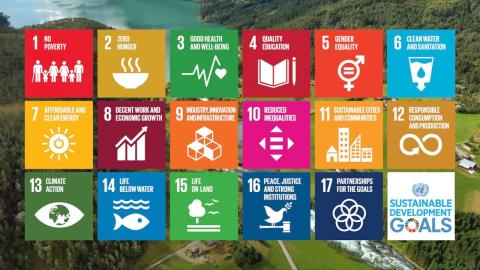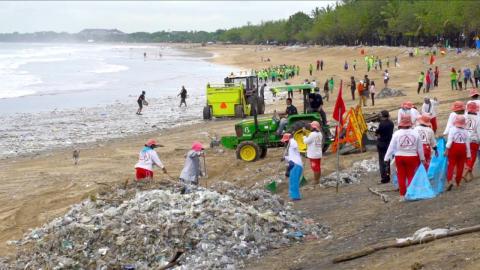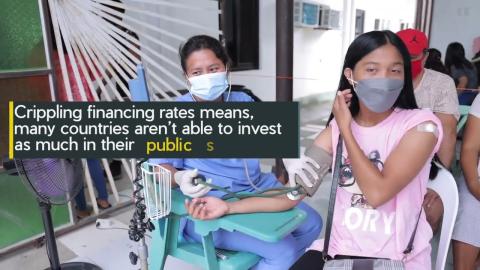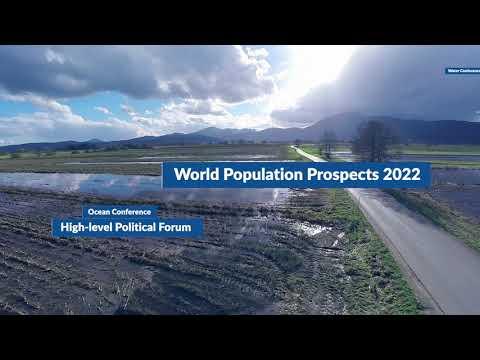8 billion strong – infinite possibilities for people and planet
Our world is approaching a landmark moment in human history. On 15 November 2022, the global population is projected to reach 8 billion people. Thanks to science, technology, and groundbreaking innovations, we now live longer and healthier. It took the human family 125 years to get from 1 billion to 2 billion. But only 12 years to grow from 7 to 8 billion.
Gender equality can’t wait – we must achieve it now for current and future generations
It will take 286 years to close gender gaps in legal protection and remove discriminatory laws against women, 140 years for equal representation in positions of power and at least 40 years to achieve gender parity in national parliaments. These numbers are truly alarming and calls for the world’s urgent action.
More than 20 years of data – and a vision of the future
So much has changed since the inaugural issue of the United Nations E-Government Survey in 2001. Back then, the Survey included assessment points that now seem firmly entrenched in the past. Fast forward to 21 years of publication, the Survey no longer measures telephone lines and televisions – instead it assesses mobile and broadband. Stay tuned for the latest edition out on 28 September.
It’s now or never: achieving the SDGs hinges on effective crises response
Still recovering from the COVID-19 pandemic, the world now finds itself confronted with numerous crises on several fronts—financial shocks, the war in Ukraine, food insecurity, climate emergency and energy access, rising poverty and inequality. Years of progress in achieving many of the 17 Sustainable Development Goals (SDGs) have been all but wiped out. Thus, the need for global solidarity and international cooperation has become ever more urgent.
Saving the ocean to protect our future
The time is now to scale up ocean action, for the sake of our lives and the future of our planet. This month, the global community will ‘set sail’ towards the 2022 UN Ocean Conference convened in the Portuguese capital of Lisbon on 27 June - 1 July. The stakes are high, and the ambition is to turn the tide in favor of our blue planet.
Science – our best bet to achieve the SDGs?
Science has pushed the boundaries of what is possible throughout history. From mapping DNA to the invention of electricity to the adoption of penicillin in modern medicine; science has shattered barriers and expanded human potential. With just eight years left to 2030, we must act now to accelerate needed transformations. Science is likely our best bet to achieve the 17 Sustainable Development Goals.
Urgent SDG funding needed to bridge ‘great finance divide’
Since the Sustainable Development Goals (SDGs) were adopted in 2015, financing has been one of the key sticking points in delivering the goals by 2030—and the inequalities caused by the COVID-19 crisis have made this challenge even greater.
Better data - for people and planet
With the help of trusted data, our world can track progress on development targets. How is the world faring when it comes to eliminating extreme poverty, combating climate change or achieving gender equality? Reliable and timely statistics hold some of the answers. During the COVID-19 crisis, data have also played a critical role in efforts to save lives.
On 28 February to 2 March and 4 March, statisticians from across the globe will come together virtually at the UN Statistical Commission to advance this work further.
Population growth, environmental degradation and climate change
More than a third of 50 recently surveyed Nobel laureates cited “population rise / environmental degradation” as the biggest threat to humankind. Second on the list was “nuclear war”, cited by 23 per cent of the laureates, while no other issue was selected by more than 10 per cent of respondents.
The eight events you can’t miss in 2022
Mark your calendars, clean your webcams and pack your bags – these are the eight sustainable development events you cannot miss in 2022.
1. The state of our economy explained
On 13 January, UN DESA experts will reveal their latest estimates of the state and future of the global economy. See if the tenuous recovery from the pandemic is taking hold and if the promises of building back better and greener are being fulfilled.
2. Focus on Least Developed Countries
 Welcome to the United Nations
Welcome to the United Nations






